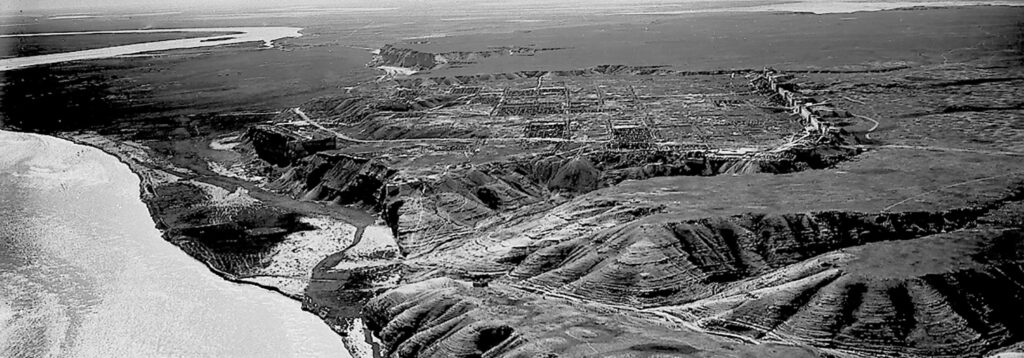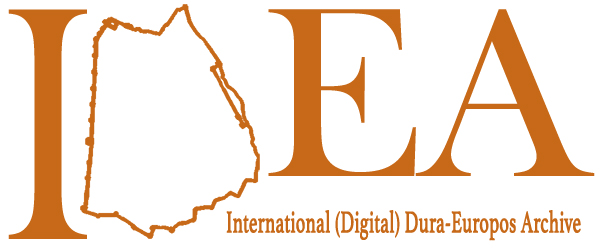IDEA is a major Digital Humanities initiative funded by the US’s National Endowment for the Humanities, and aimed at digitally re-integrating dispersed collections and discipline-specific knowledge related to the important cultural heritage site of Dura-Europos (Syria).

The project’s re-assembly and re-contextualization efforts are driven by Linked Open Data (LOD) methods and critical archival studies. Central to IDEA’s approach is an exploration of how new technologies can be put to use for ethical collaborative interventions related to legacy archeological archives.
Imbalances in access and inclusion are among the most pressing problems facing the cultural heritage and archival sectors today. Blockbuster ‘Big Digs’ of the early 20th century (like Dura-Europos) have filled collections and textbooks in the West, and while many museums and archives are doing the good work to improve the accessibility of their collections by putting them online, accessibility gaps and knowledge silos persist that track back to unequal power dynamics and political structures in place at the time of the first excavations.
Key questions guiding our work:
How can institutions, scholars, curators, and students who have benefitted from these early excavations work more effectively together toward mitigating inequities in access to the intellectual products of archaeological work on-site?
Can digital humanities methodologies underpin more equitable intellectual exchange, and even help disrupt entrenched hierarchies of knowledge that frequently still exclude local stakeholders?
How can emerging technologies help us collaborate across borders in times of conflict and crisis?
Project Outline:
The International (Digital) Dura-Europos Archive (IDEA) is developing digital archival methods and content to improve the intelligibility and accessibility of archaeological knowledge related to a specific site for global scholars and publics alike. But the team’s work goes beyond this specific Syrian archaeological site. To improve global knowledge equity related to cultural heritage, IDEA is documenting and sharing our methods to provide a jump-start to interventions related to analogous legacy archaeological collections. This work advances a practical conversation about how to make most ethical use of technology to enhance multi-disciplinary and cross-cultural data-sharing and reuse for the (global) public good.
Our methods:
IDEA aims to virtually reassemble and improve the accessibility of digital archival content related to the archaeological site of Dura-Europos. The IDEA team is using Linked Open Data (LOD) methodologies, specifically the Wikidata and Wikimedia Commons platforms, to create and virtually network records for buildings, artifacts, archival documents, events, people, and bibliography related to the site using structured data.
Our approach draws on Wikidata’s inherent multilingualism and the strengths of the LOD ecosystem to both improve comprehensibility of archaeological knowledge among English-speakers while also helping to bridge knowledge and access inequities that persist in the wake of foreign-run excavations at the site.
Our team is committed to developing workflows and open multilingual datasets that can further enable and prepare the way for collaborative curation with Syrian heritage professionals and communities. We make use of low-technical-barrier, free and open tools, and document and share our processes with the hope that our methods may be a springboard into LOD for low-resourced projects and institutions.
Toward this end, Wikidata offers the following benefits:
- Multilingual
- Collaborative curation
- Built-in visualizations (mapping, visual annotation, graphs)
- No separate hosting fees (data contributed to Wikidata is hosted by the Wikimedia Foundation)
- Import/update WD records from OpenRefine
- Flexible–can be used to model different kinds of material
- Possible to interact with LOD without knowing SPARQL query language
- Allows competing values, all sourced back to publications/databases
- Built-in tools to aid data maintenance, consistency, and quality
Find our project and get involved :
- Find out more on our WikiProject page
- Join and learn about our Undergraduate Research Lab: IDEA_Lab@EH
See some sample queries:
Number of Dura-Europos artifacts from various collections that IDEA has documented in Wikidata so far.
Sample query combining Wikidata Dura-Europos artifact records with findspot data aligned with the Durene urban gazetteer. (NB: press the ‘play’ button on the left side to run the query)
